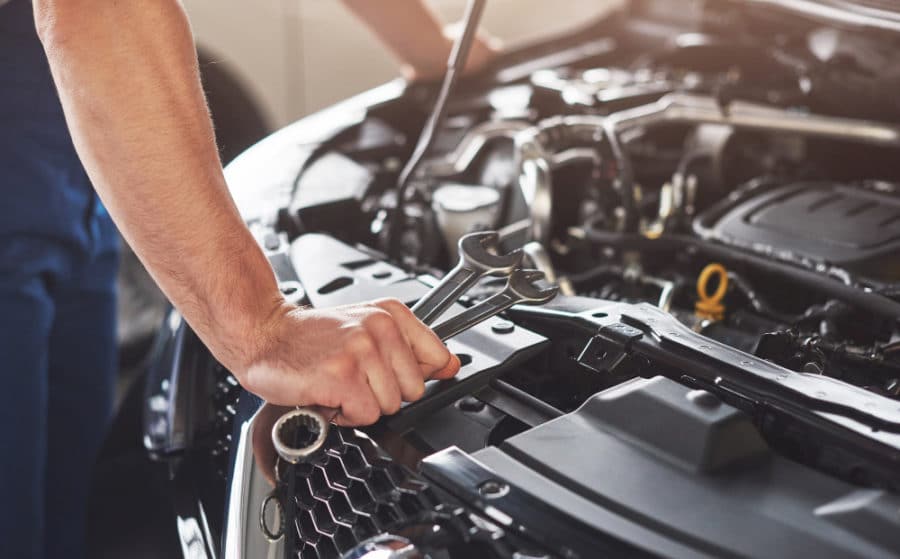Nobody likes when your car is breaking down. It stresses you out, you get nervous and you fear what is going to happen. Engines can be very tricky, and when an engine is overheating you can find yourself in a lot of trouble.

What To Do When Your Engine Is Overheating
Here are some tips on how to deal with that problem.
Pullover
You must turn off your vehicle as quickly as possible. When it’s safe to do so, pull over and let the engine cool for at least 15 minutes while keeping an eye on the temperature gauge. While you’re waiting, think about how you’ll handle your overheated engine.
This sort of automobile problem does not go away on its own, and it usually indicates that something is wrong with your vehicle. For roadside help, call a tow truck or visit your nearest service center. The longer you drive with your engine overheating, the more serious and irreversible the damage will be when you get to your destination.
Even if you do make it there, you risk causing irreversible harm to your vehicle. Allow the engine to cool completely before attempting to open the hood. Stay patient as the stream of smoke pouring from your car may burn or harm you. Before you look beneath the hood, let the temperature gauge show that the car is cool.
Be Prepared
Regardless of the weather or your travel intentions, it’s a good idea to keep a safety kit in your car at all times in case of an emergency. Extra coolant, a tool kit, a flashlight, a blanket, matches, first-aid kit, water, and some non-perishable food items should all be included. You never know when you’ll need these things, so it’s always better to be safe than sorry.
Ground thawing equipment is a tool used for defrosting frozen ground. This specialized equipment is commonly used in construction and utility projects that require digging or trenching in frozen terrain.
Ground thawing equipment typically utilizes heat to thaw the ground, whether it’s electricity, propane, or hot water. Some common types of ground thawing equipment include ground heaters, hydronic heaters, and electric blankets. These tools are designed to efficiently and effectively thaw the ground, allowing for excavation work to proceed smoothly. Ground thawing equipment is essential in colder regions where frost can cause delays and complications in construction projects.
Head Gasket
When it comes to engine overheating, the head gasket poses a big dilemma. An overheated engine, for example, might produce head gasket leakage. When metal engine parts become too hot, they can flex and expand, pulling away from their gaskets and seals and causing leaks. However, because the head gasket maintains coolant flowing correctly through the engine, a leak causes the engine to overheat.
While driving with a blown gasket is feasible, it is not recommended. The pressure in the combustion chamber is lost after the seal is burst, and you’ll notice a substantial reduction of power. When you notice something like this, we urge that you stop driving as soon as possible, and also do the same if your car’s engine temperature warning light comes on. Operating an overheated engine might result in catastrophic engine failure very rapidly! To keep your automobile on the road, you’d have to spend a lot of money on an engine rebuild or engine exchange.
Clean Your Condenser
The better the cooling, the more air that passes through the radiator. Dirt and debris tend to gather in the front of your car and pile up. If you have air conditioning, the condenser will bear the brunt of the condensation. Because your condenser is so close to your radiator, congestion here prevents air from reaching the radiator, causing the engine to overheat. Cleaning the condenser improves the cooling system’s performance by lowering the pressure. A/C systems are heat exchangers that absorb heat from within the engine and send it outside through the condenser. The efficiency of the entire A/C and cooling system will be harmed if the condenser is clogged, broken, or lacks adequate airflow.
Inspect Your Radiator Cap
The radiator cap has a big job: it keeps pressure in your whole cooling system, preventing overheating and fluid boiling over. Because the cap is spring-loaded, it might weaken and wear out over time, resulting in small air leaks. This will result in a drop in system pressure, which can easily lead to the engine overheating. You should keep your hands off the cap! It’s under a lot of strain, and the liquid within is quite heated. Before performing any repair, make sure your engine is completely cold.
Check Your Coolant
Antifreeze (coolant) is required for your vehicle’s radiator to work and keep your engine temperature under control. You should check it often and ensure that it is topped up before driving. Coolant, like every other fluid in your engine, degrades with time. Poor coolant, on the other hand, accumulates in your engine and radiator, causing severe problems with the overall system’s operation. Keep an eye out for any discoloration or particles while checking your coolant. Cleaning and changing your coolant system is a vital element of vehicle maintenance and overheating prevention.
The best thing when you get yourself in this situation is to be relaxed and to act accordingly. The reason why your car overheats can be very problematic, but you need to get to the bottom of the problem. If there is nothing you can do to fix it or it’s becoming problematic and expensive you may be better off finding a used engine and have it installed. At that point you can maintain it and keep it fresh and working
